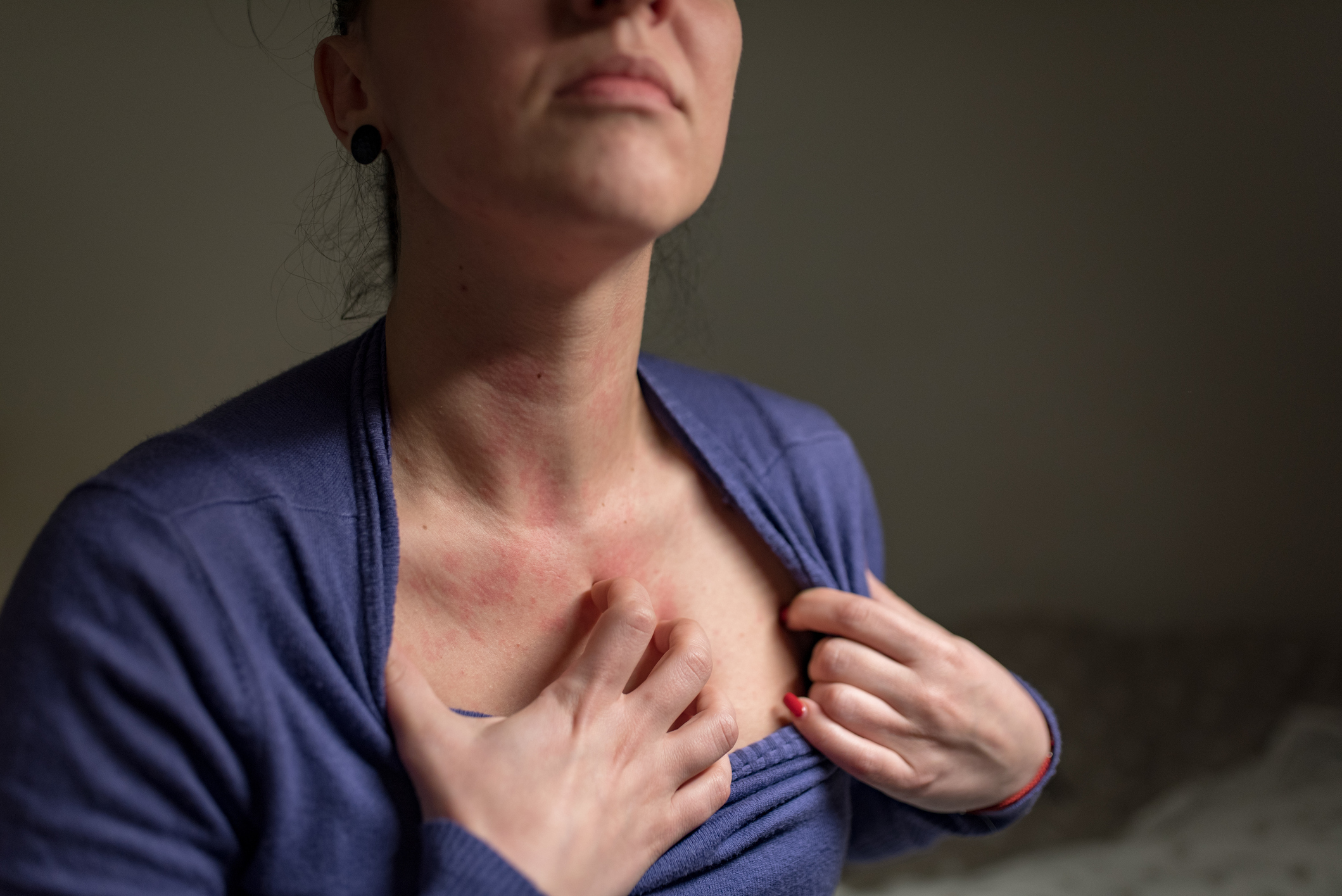Get Easy Health Digest™ in your inbox and don’t miss a thing when you subscribe today. Plus, get the free bonus report, Mother Nature’s Tips, Tricks and Remedies for Cholesterol, Blood Pressure & Blood Sugar as my way of saying welcome to the community!
Eczema flare-up? Cut back on the salt

Just like any other processed food, refined white salt is really bad for your health. And we know that too much of it can make hypertension far more likely.
But I’m here to tell you about the latest findings on how salt may cause a common skin condition that is not only uncomfortable but often a warning sign that your heart health is in trouble as well.
It’s a condition that one in ten of us will suffer from at some point in our lives. Here’s what you need to know.
News flash: salt is stored in the skin
Until 2013, according to Dr. Jens Titze of Vanderbilt University, research into hypertension had focused on the kidneys, blood vessels and brain.
But in that same year, Dr. Titze noticed that “despite massive research efforts, we still do not understand in more than 90 percent of our patients why their blood pressure is elevated. We thought a different approach might be useful.”
Dr. Titze and his team found evidence that the body stores sodium in the skin and that immune system cells and lymph capillaries found under the skin also regulate sodium balance and blood pressure.
This means that it’s not just the heart, kidney and brain that control blood pressure, but also the skin.
But we now know that too much salt stored in the skin doesn’t just affect blood pressure. It plays a role in the inflammation of an all-too-common skin condition…
Salt, inflammation equals eczema flare-up
Researchers at UC San Francisco have recently discovered that limiting dietary salt could be an easy way for people with eczema to manage their disease.
Eczema, also called atopic dermatitis, is a chronic disease. In case you’ve been lucky enough not to experience it, let me describe it for you…
Itchy, uncomfortable red patches… dry, flaky, peeling skin… a rash that burns… open, crusty sores that develop when you scratch.
These uncomfortable symptoms are all part of living with eczema.
For their cross-sectional study, the UCSF team looked at 13,000 U.S. adults in the National Health and Nutrition Examination Survey and found that eating just one additional gram a day of sodium — about half a teaspoon of table salt — was associated with 22 percent higher odds that someone would have an active case of eczema.
How to deal with eczema naturally
Now you have just one more reason to be careful about the amount of salt in your diet in addition to the concerns about how it impacts heart health, brain health, risk for diabetes and lifespan.
If you suffer from eczema we’ve written about a few ways to soothe it without resorting to drugs. Some key points to remember:
- Stay away from soap
- Don’t soak for a long time, just bathe long enough to remove dirt and germs from your skin
- Always apply moisturizer after bathing or showering
Here’s just a sampling of other posts that may be helpful:
Eczema relief with essential oils
Eczema: The early vitamin intervention that could stop it
8 sneaky ingredients that could be making your eczema worse
Exploring the benefits of green tea for your skin
Editor’s note: Did you know that when you take your body from acid to alkaline you can boost your energy, lose weight, soothe digestion, avoid illness and achieve wellness? Click here to discover The Alkaline Secret to Ultimate Vitality and revive your life today!
Sources:
Why do 1 in 10 Americans get eczema? Is it too much salt? — Science Daily
Sodium Intake and Atopic Dermatitis — JAMA Dermatology
Salt gets under your skin — Science Daily
Immune cells control skin lymphatic electrolyte homeostasis and blood pressure — Journal of Clinical Investigation














